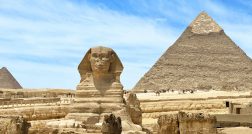Turkish tourism enjoys huge rebound in 2017
The latest report from the Turkish Statistical Institution (Turk Stat) shows Turkish tourism revenue in 2017 rebounded by 18.9 per cent year-on-year.
Reaching its peak in 2014 with a record-breaking US $34 billion, revenues dropped dramatically during the next two years following a series of terrorist attacks and a failed coup that rocked the tourism industry in Turkey.
Intense security campaigns as well as branded media advertising helped tourism start to recover in 2017, and revenue for the total year was US $26.3 billion. Some US $21.5 billion of that is credited to independent travel while package tours accounted for US $4.8 billion.
Foreign visitors spent the most amount of money on food, drink and transport, closely followed by overnight accommodation, with the majority preferring hotels and motels despite the increase in popularity of self-catering facilities.
While in Turkey, visitors spent roughly US $3 billion on attire and US $1 billion on souvenirs, not including US $100 million on Turkish carpets and rugs often considered ‘must-buys’ while visiting the country.
‘Top destinations in the world’
Julian Walker, managing director of UK-based Turkish property agents Spot Blue, said: “This news is in line with expectations for 2018 that the Turkish tourism industry can bounce back to 2014 figures and achieve its 2023 goals to be one of the top visited destinations in the world.
“The flight market between the UK and Turkey is set to play a major part in this comeback after many UK airlines drastically increased their seat capacity.”
In addition to the Turk Stat figures, Turkey’s hotel association TUROB also reported an 18 per cent year-on-year increase in hotel occupancy rates. Taking its stats from STR Global, Turkey showed the highest growth among European countries by reaching 60.2 per cent.
TUROB is cautious before celebrating success though, pointing out that the ADR (average daily room rate) fell by an average of 12 per cent, meaning profits are not what they ought to be.




